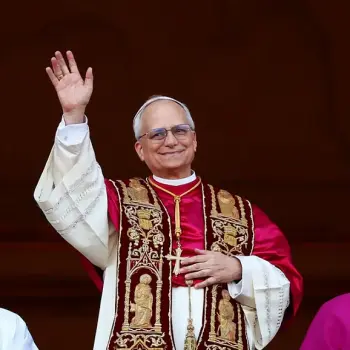Lectionary Reflections on Acts 2:1-21
Pentecost Sunday, May 27 2012
Happy birthday to you, happy birthday to you, happy birthday, dear church, happy birthday to you! Instead of the usual bread and juice, my friends, we will today instead celebrate the supper of the Lord with sheet cake and Coke. However, we will not partake by means of intinction; cake dipped in coke is decidedly unappealing! So now I have offered to you a way to begin your Pentecost liturgy.
Of course, my silly start to this reflection on Pentecost is perhaps one way to begin thinking again about just what we think we are celebrating on this festive day. It is quite often referred to as "the birthday of the church," which I suppose is at least partially true. That day in Jerusalem, when the waiting apostles experienced the "tongues of fire" and the "sound of rushing wind," did signal in dramatic fashion the gift of the Spirit, promised to them by the ascending Jesus in Acts 1:8. The term "Pentecost" ("fiftieth" in Greek), is used only twice in the Septuagint (the Greek translation of the Hebrew Bible, much used by the early church) as a translation for the Hebrew agricultural festival, the "Feast of Weeks." That festival has to do with offerings of first fruits, especially pure lambs, to YHWH (see Leviticus 23:15-21 for the legislative arrangements for the celebration). In effect, Luke here announces that the older festival has been reinterpreted by the new Christian community as one of a fresh offering from God, the descent of the Holy Spirit on believers.
Luke proceeds to describe just what happened when the Spirit showed up. First, "a sound from heaven like that of a strong wind filled the whole house where they were sitting" (Acts 2:2). Note that the wind did not fill the house; it was the sound that filled it. This loud sound recalls the great Sinai appearance of YHWH, the trumpet sound of which caused all to tremble. Indeed, the sound grew so loud that Moses was answered by God in thunder from the top of the smoke-wrapped mountain (Exodus 19:16-19). And this wind-like sound recalls both God's appearance to Elijah (I Kings 19:11-12) and Elijah's fiery ascension to heaven (II Kings 2:11). Luke is ever fond of connecting the events of his story with older stories from the Hebrew Bible in order to give them increased plausibility and resonance with his new audience.
Then the famous "tongues as of fire" appeared "and sat upon each one of them" (Acts 2:3). Note something important here: these are tongues "as of" fire; they are not tongues of fire. The poet here is reaching for a metaphor to emphasize the mystery and to engage his readers in the power of the moment. Like the prophet Ezekiel before him, who revels in using the prepositions "like" or "as" to provide wider interpretive possibilities and to avoid the dangers of too literal a portrait, Luke invites our imaginations by picturing these licking tongues as fire-like and sitting on each apostle present. Fire, of course, reminds us of the myriad times when appearances of God in the Hebrew Bible were accompanied by fire.
Then occurs perhaps the most famous and contentious experience in the chapter. "All were filled with the Holy Spirit. They began to speak in other languages just as the Spirit gave them the ability" (2:4). This is clearly NOT describing an experience of ecstatic speech, or glossolalia. Luke's emphasis on this day of Pentecost is not to describe ecstasy but communication of the Gospel. Such ecstatic speech, which often meant an inarticulate babbling, probably arose from a long pagan tradition of prophetic ecstasy to be found in many places of Hebrew and Hellenistic culture. Surely, Paul spends much time with this idea in three chapters of his first letter to the church in Corinth (chapters 12-14), and Luke himself knows of this phenomenon in Acts 10:45 and Acts 19:6. Ecstasy this may be, but for Luke the key is that it is understandable by everyone within earshot. That is the miracle of Pentecost: not babbling speech, but clear Gospel speech.
This fact is made very clear in the succeeding verses (2:5-12). The vast array of persons, assembled for the great Jewish agricultural feast, are instead "astonished and confused" as the speeches from the mouths of these Galilean Jews rush into their ears in their own languages; verses 9-11 list those hearers who have come from east and west, north and south, all of whom now hear, just as if they were being spoken to by their own native speakers, the "great deeds of God." In their understandable shock, they turn to one another and ask "what this meant" (2:12). "But others mockingly declared that they were filled with new wine," rather than filled with the Holy Spirit of God. Not everyone at this Pentecost festival, then, heard the great deeds of God being spoken; their ears were closed to it. In this way, Luke warns his readers that no matter how Spirit-filled the preachers, no matter how possessed by the fiery tongues of that Spirit they may be, there will always be those who will not hear and who will instead mock those who say they do. In short, Luke's scene is a portrait of early Christian missionary work, both its successes and its failures.





